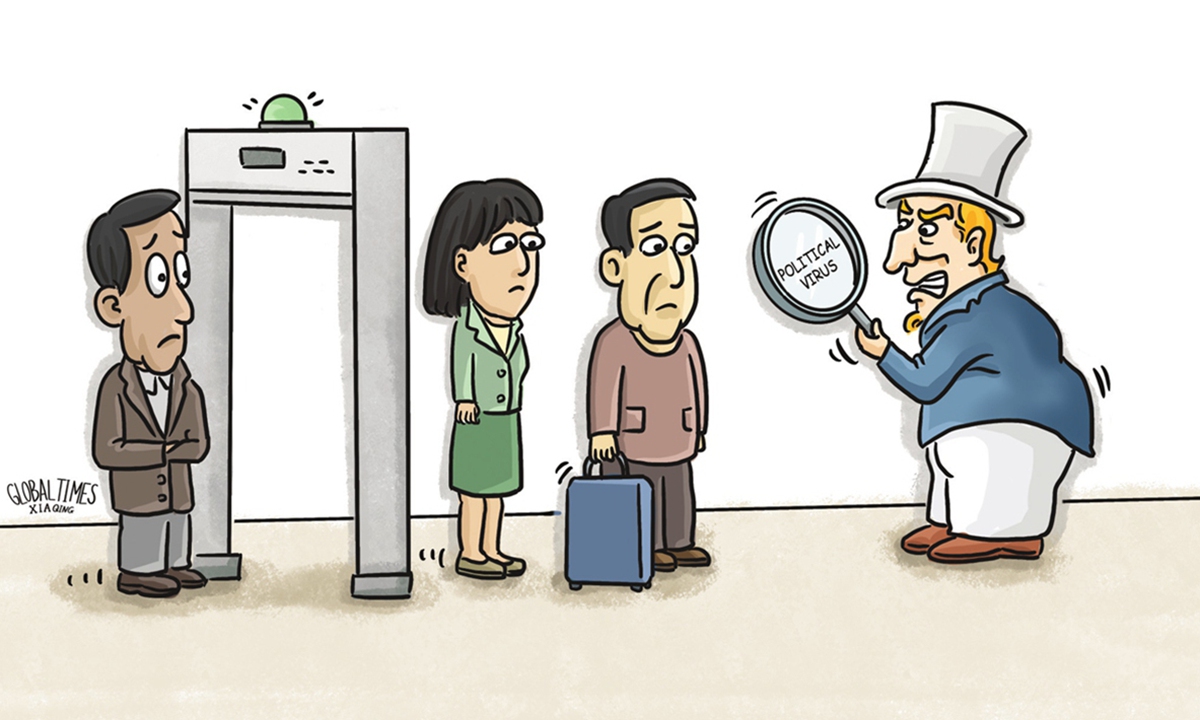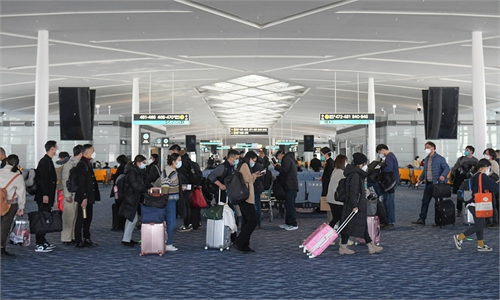
Illustration: Xia Qing/Global Times
Isn't it about time the COVID policy shift in China is viewed in its appropriate context, or from some kind of rational perspective? At a time like this, cool heads are called for and the large-scale sensational reporting and knee-jerk overreactions are inappropriate. Better to be level-headed than pig-headed when giving consideration to a public health emergency, surely?Yes, cases have increased in China dramatically since the policy shift relaxed the dynamic zero-COVID strategy. Surely that was only to be expected, and is evidence not of failure, but of the effectiveness and appropriateness of the original measures. Many elderly people affected, for example, did not get themselves vaccinated because the dynamic zero-COVID policy had protected them, and millions of others.
The key to the success of the changes will not be measured by the spread of the virus, or perhaps not even the rise in levels of illness, but rather in the number of people who become seriously ill and ultimately, of course, in the number of deaths. Those figures are already being speculatively exaggerated in the West.
Some places have already decided that those future metrics will be dire. Japan, South Korea, Italy, Malaysia and most recently the US have targeted travelers arriving from China with strengthened COVID-19 measures.
The Western media has hyped up the death toll of the epidemic in China groundlessly. In fact, it is well known that official figures put the toll much lower than the more than 1 million deaths in the US, according to Beijing, by the effectiveness of the dynamic zero-COVID policy. Even allowing for international differences in calculating death tolls, it would seem figures are significantly lower than scare stories appear to suggest.
When Italy, which was tragically the early epicenter of the pandemic in Europe, introduced testing on arrivals from China, many commented that it felt familiar, as if history was repeating itself from that time which saw the crisis develop in late 2019 and early 2020. But to say that it seems familiar is to not take into account many different factors: Most countries have had their COVID defenses heavily reinforced by population-wide waves of vaccinations, and the virus has been present in many forms for some time. The particular strain widespread in China, the BF.7 omicron variant, is already present in Europe and has failed to become dominant.
And while American officials have been spreading disinformation that there are "mounting concerns" in the international community about a possible dangerous variant, there is no evidence of one. It is less an issue of whether the virus - already widespread - is being carried by visitors, and more one of whether this increases the risk to people already there.
Indeed, an official of the German health ministry made it clear when speaking to the media that there was "no indication that a more dangerous mutation had developed," BBC reported. The European Union as a whole reportedly has no plans to follow in the footsteps of America and its allies. Both are doubtlessly monitoring the situation closely, as they have a duty to safeguard their populations, but until there is reliable scientific evidence - rather than speculation - there should be no reason to change.
Of course, as usual for anything concerning the current British government, there is confusion about what is policy and what is not. The standard behavior for the UK seems to be to not let the left hand know what the right hand is doing.
It could give a clue to the differences in response by different nations to the same scientific evidence: Some claim it presents a danger, some say not. Could other preconceptions or even prejudices against China be playing a part?
It remains to be seen whether Britain will continue to follow the scientific advice and evidence or whether it will like others politicize the virus to trigger a knee-jerk response of testing arriving Chinese travelers. There is little doubt that parts of China have been going through difficulties recently, though some places like Beijing are thought to have already passed the peak of infection. But it remains the case that the BF.7 variant is one of the most common in the world and there is no evidence to support allegations of new variants.
Nobody blames any community for taking what it sees as necessary precautions to protect its population, but those precautions should be driven by level heads and not panic, exaggeration or misinformation.
The author is a journalist and lecturer living in Britain. opinion@globaltimes.com.cn



